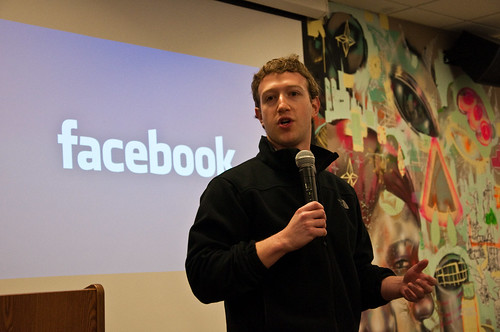Wall Street 2. What did it tell us about our the spirit of the time we live in, the way the original did about the yuppie culture and 1980’s optimism? I haven’t seen it so I can’t tell you for certain, but from what I’ve read the answer to that question should be ‘nothing’.
Last night I saw the social network. A new movie about the beginning of Facebook and its founder Mark Zuckerburg, by Aaron Sorkin, most famous for creating West Wing. I realized that this is the film that will be seen as the to capture the essence of the business environment going into the 2010s (unfortunately the essence seems to involve 0 smart women, but that is the subject for another blog post). In many ways, Sorkin has created a Wall Street for our times.
Most obvious, both Wall Street and the social network are treating the most hyped industries of their respective times. The 80s was a time defined by the artificial engine of the financial sector. There was a lot of ingenuity and if you were smart and ambitious, it was clear that you were supposed to work on Wall Street. While there are many things that define the first decade of the 21st century, the internet start-ups had a significant impact on the way business is being done now and completely changed the way people communicate with eachother. The most coveted job by college students, even business majors, is one at Google.
Gordon Gekko, the idolized antagonist of Wall Street, and Sean Parker, the founder of Napster who in the social network is portrayed as a socially savvy but slightly paranoid entrepreneur, share their dislike for the old way of doing business. Gekko stands up at a shareholders’ meeting and calls for a new era of business. One where greed is the guiding principle and there is no place for inefficient companies. Sean Parker, similarly, points an actual fuck you to the venture capitalists that cheated him, representing the entrepreneur as the clarifying hero of our time.
Most importantly, I think this movie will inspire a lot of people in the same way Wall Street did back in the 80s. Even if the financial sector of today was possibly deterred by the way Wall Street ended, many of those who came to work for the banks, hedge funds and investment companies were inspired by the terrific devotion and intelligence of Gordon Gekko. He was a maverick who did something new and nothing was to stand between him and his idea. The nerds and entrepreneurs who look up to Zuckerberg will mainly see his hard work and his strong belief in what he is trying to achieve with Facebook. The intelligent maverick is still the hero, but has changed from disruptive to a constructive force in society.
I was able to see the social network thanks to Netopia, who arranged the preview.

